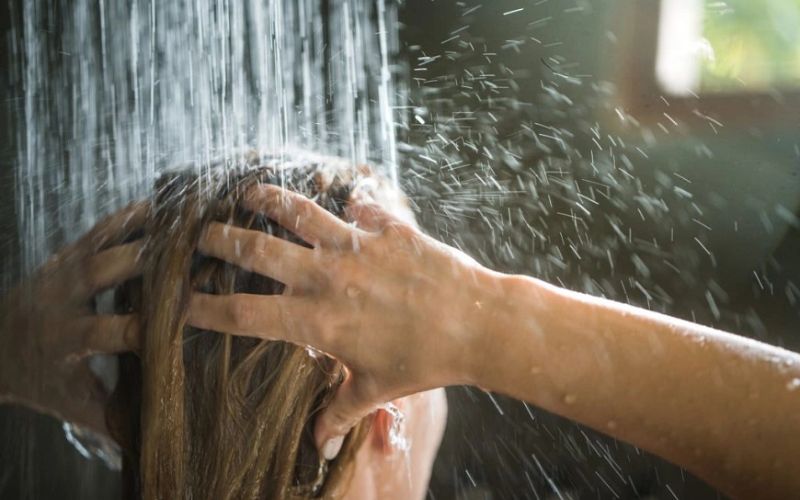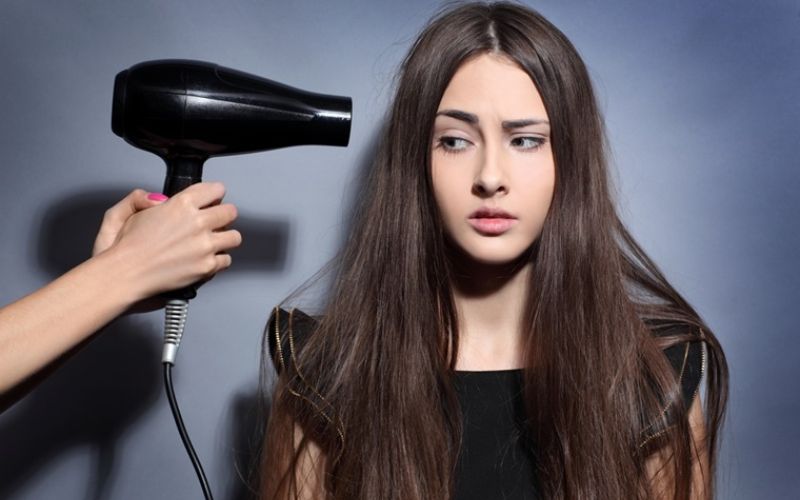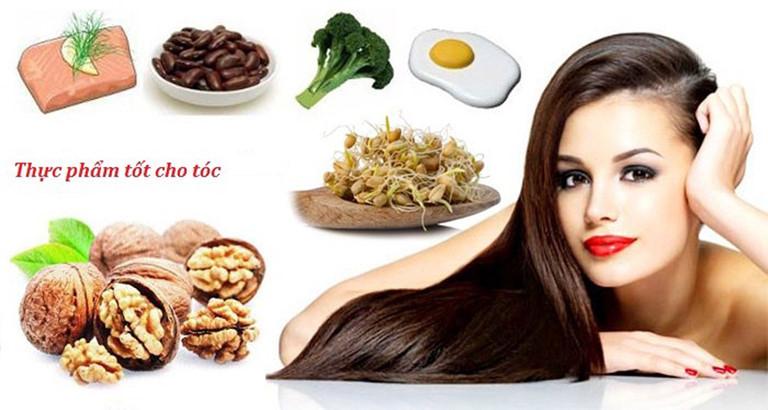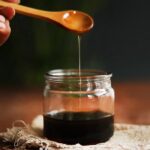There are several reasons why hair loss is more prevalent during the winter months:
– Dry Skin: Cold, dry air strips moisture from the scalp, reducing the natural oils that protect hair. This can lead to dandruff, dry and brittle hair that is more prone to breakage and shedding.
– Vitamin D Deficiency: With shorter daylight hours and less sun exposure during winter, our bodies may produce less vitamin D. Vitamin D is crucial for hair follicle health and the production of new hair cells.
Vitamin D also plays a role in absorbing essential minerals like zinc, iron, and calcium, all of which are vital for healthy hair growth and retention.

Washing hair with very hot water can strip moisture from the scalp and hair, leading to dryness and breakage.
– Improper Hair Care Habits: During winter, there is a tendency to use hot water for bathing and hair washing. This can cause dryness in the scalp and hair, disrupting their natural moisture balance. Additionally, we often blow-dry our hair on high heat after washing, which can further contribute to hair damage.
These habits directly impact the health of the scalp and hair, leading to increased hair loss during the winter months.
– Unbalanced Diet: In cold weather, it’s common to crave spicy, fried, and grilled foods while neglecting to eat enough fruits and vegetables. This dietary imbalance can result in vitamin and mineral deficiencies, making hair more susceptible to weakness and shedding.
– Hat and Scarf Usage: Keeping warm with hats and scarves is essential during winter, but wearing them all day can cause friction and restrict airflow to the scalp. This creates a favorable environment for bacteria and fungi to thrive, leading to issues like dandruff, itching, and seborrheic dermatitis, all of which contribute to increased hair loss.
– Hormonal Changes: Extremely low temperatures and reduced sunlight can affect the production of hormones in the body, particularly androgen and estrogen. Androgen plays a crucial role in hair growth, and a decrease in this hormone can disrupt the hair growth cycle, resulting in hair loss.
– Poor Hygiene: Cold weather may make us less inclined to wash our hair regularly. Both over-washing and under-washing can lead to increased hair loss. Not washing enough can result in a buildup of dirt and oils, creating a breeding ground for bacteria and fungi. This can lead to itchy scalp and the urge to scratch or pull at the hair, putting additional stress on the hair follicles and increasing hair shedding.
Tips to Reduce Hair Loss during Winter
To maintain healthy hair and minimize hair loss during winter, it’s essential to address any unhealthy habits. Here are some simple yet effective steps to help you achieve smooth and vibrant hair throughout the harsh winter months:
– Moisturize Your Hair: This is a crucial aspect of winter hair care to combat dryness. Aim to wash your hair twice a week, using gentle, fragrance-free shampoo and conditioner suitable for your hair type. Once a week, apply a moisturizing hair mask using store-bought products or natural ingredients like butter, banana, yogurt, or eggs.
For those with dry, frizzy, or tangled hair, choose hair care products containing moisturizing agents like coconut oil, olive oil, or castor oil to massage the scalp and nourish the hair. Avoid brushing wet hair to prevent breakage.

Avoid drying your hair with high heat.
– Avoid High Temperatures when Washing: While hot water may feel comforting, it can leave your scalp and hair feeling dry and brittle. Especially after washing your hair with hot water, refrain from using a hairdryer on high heat as this can cause further damage and frizz. Instead, gently blot your hair with a soft, dry towel. Then, use a hairdryer on medium heat, maintaining a distance of about 25cm from your scalp, to minimize heat damage.
– Don’t Cover Your Hair All Day: While it’s important to keep warm with hats and scarves, avoid wearing tight-fitting hats that can cause friction and restrict airflow to the scalp. Regularly wash and dry your hats and scarves to keep them clean and free from dirt and bacteria. Remove your hat when indoors, and avoid covering your head with a blanket while sleeping.

A diverse diet contributes to healthier and shinier hair.
– Diverse Diet:
During winter, pay attention to including the following food groups in your diet:
+ Protein: Protein is the primary component of hair, providing strength and resilience. Include ample amounts of meat, fish, eggs, beans, and dairy products in your diet to ensure sufficient protein intake.
+ Iron: Iron aids in oxygen transport to cells, including hair follicles. Incorporate iron-rich foods like red meat, beans, green vegetables, and pumpkin seeds into your meals.
+ Zinc: Zinc plays a vital role in protein synthesis and regulating DHT (dihydrotestosterone) levels, which is essential for proper hair growth. Zinc-rich foods include seafood, meat, beans, nuts, and whole grains.
+ Vitamins and Minerals: Vitamins A, C, E, and B-complex (such as biotin, niacin, and folate) strengthen hair and reduce breakage. Fruits, vegetables, and legumes are excellent sources of these vitamins. Even if you don’t feel like eating fruits and vegetables during the cold season, make sure to include them in your diet to ensure adequate fiber and vitamin intake.
+ Healthy Fats: Omega-3 fatty acids, found in fish, nuts, and oils like olive oil, help maintain scalp and hair moisture, enhancing shine and softness.
+ Stay Hydrated: Drinking enough water (1.5-2 liters per day) is crucial to combating dry scalp and hair loss during winter. Ensure you’re properly hydrated to maintain healthy hair and skin.
Overcome hair loss fears and embrace healthy hair practices.





































